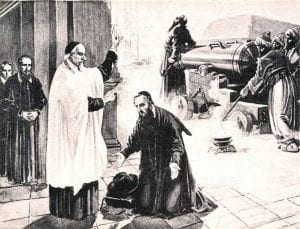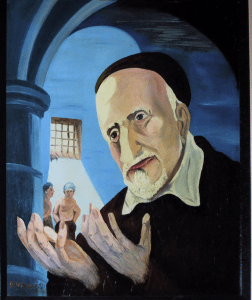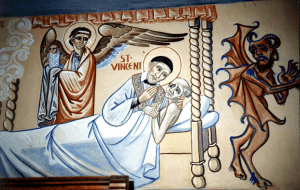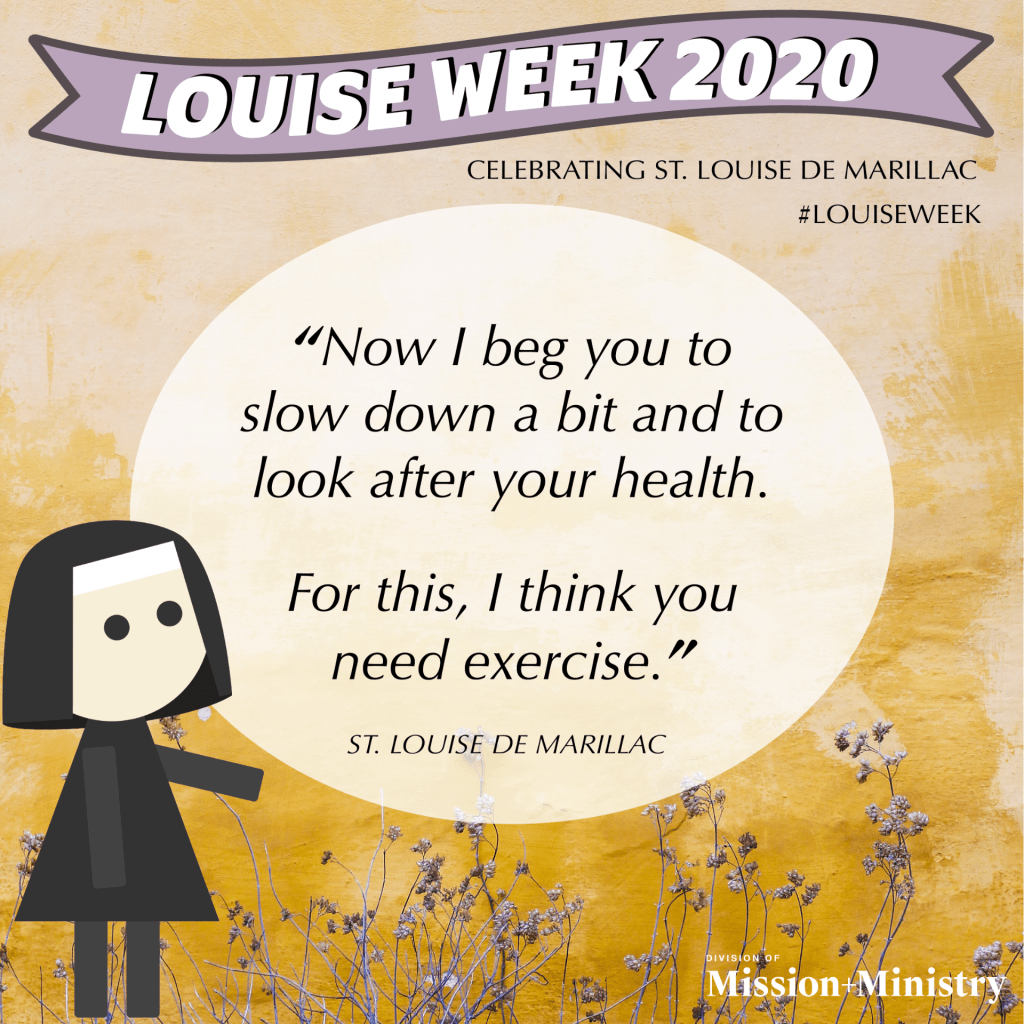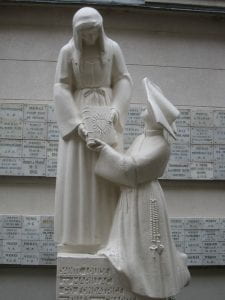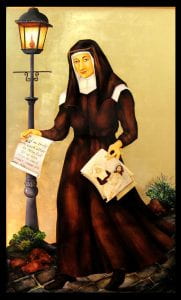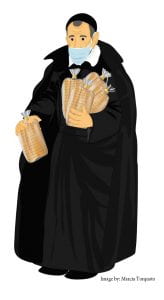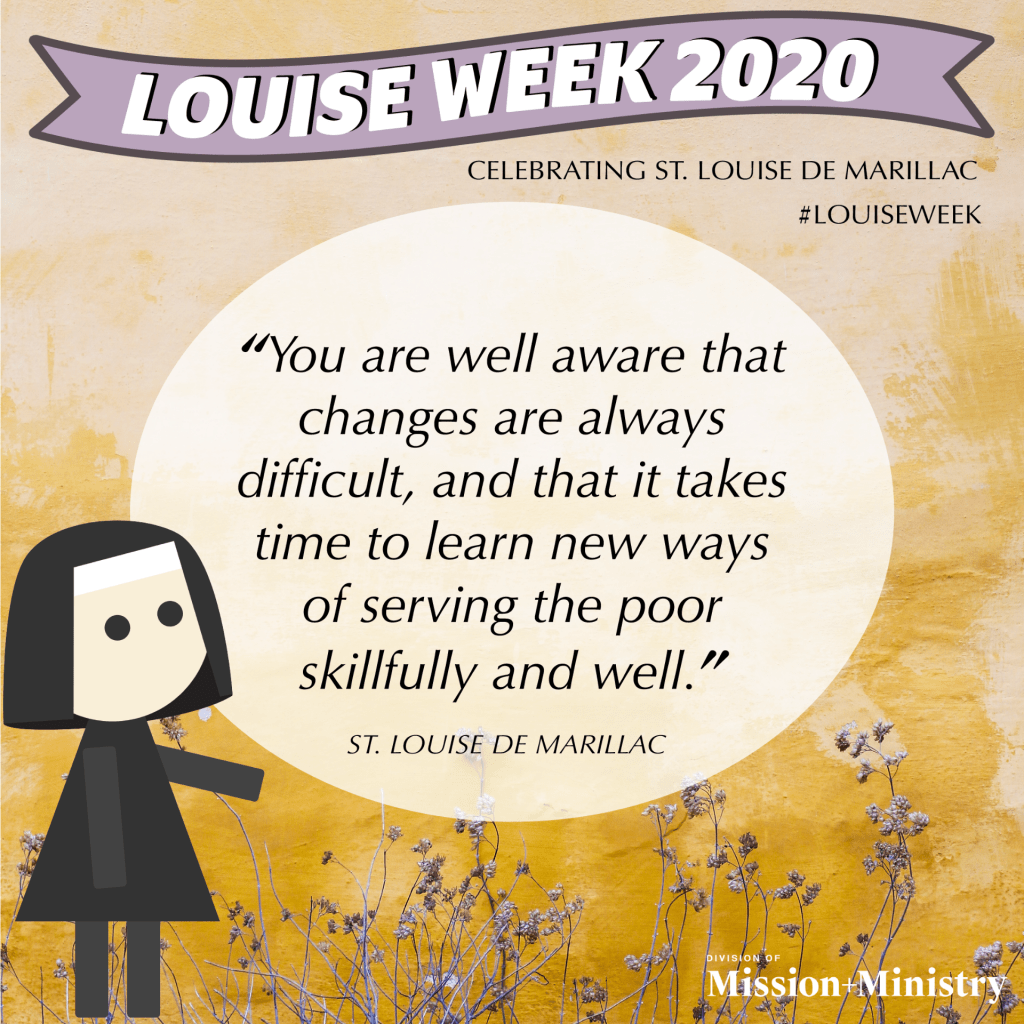
By
Emily LaHood-Olsen
Vincentian Service & Formation Team
Division of Mission & Ministry
When my daughter gets older and asks me to recount life in a time of COVID-19, I will tell her about the day last week when we played in the courtyard in front of our building. Every time a neighbor walked outside, she would pick a dandelion, run toward them saying, “Hi!” and try to hand them the flower. All the while, I gently held her back. I will share my fear that social distancing would severely impact her development—that it would teach her to fear the close contact of others or make her too dependent on screens for social interaction, that it might create a stunted understanding of community.
 I will share with her the frustration and anger that bubbled up in the face of social inequity, the disregard of science and human life, the apparent inability to mobilize to get safety equipment to grocery store workers, public transit drivers, medical professionals, and hospital janitorial staff.
I will share with her the frustration and anger that bubbled up in the face of social inequity, the disregard of science and human life, the apparent inability to mobilize to get safety equipment to grocery store workers, public transit drivers, medical professionals, and hospital janitorial staff.
I will tell her that the word COVID, in a word, was resilience.
When all this began, I prepared myself for the trauma of these times. I expected to be inundated with news of COVID-related tragedy and prepared my spirit accordingly. What I did not expect was to grieve a perfectly normal, non-COVID death. Five weeks into quarantine, my father-in-law died from undetected bone cancer.
Since then, my husband and I have been navigating a complex, confusing state of mourning. We cannot fly to Washington to be with family or ritualize his passing. We cannot gather in person with our community to receive hugs or share memories. We cannot ask friends to babysit our little one so that we can take some time to simply be sad with one another. The lakefront, our church, and the coffee shop that brings us comfort down the street are all closed; and, we are living each day within the walls that carry our grief.
The plans we made to face the unknown at the onset of shelter-in-place are now completely out the window. We are learning a new kind of resilience.
This experience has prompted me to think about Louise and her journey. Louise experienced an incredible amount of grief and disappointment throughout her life. She was rejected by her family, deprived of her education when her father died, and denied her dream to become a Dominican nun. Although she felt marriage was not her calling, she entered into an arranged marriage. Her son had developmental issues that she did not have the resources to understand. Her husband grew incredibly ill, and she cared for him through his death.
Nothing in Louise’s early life went the way she planned; and yet, she remained resilient. This resilience equipped her to shatter the barriers that blocked her path.
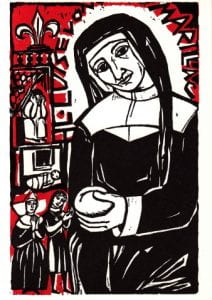 Louise saw the needs of the world and responded in radically creative ways. In a society that offered only two options for women—marriage or cloistered religious life—Louise forged a new way. The Daughters of Charity were the first religious women to be out in the world, unconfined by convent walls, serving people on the streets. Oral history tells us that Louise “misplaced” the letter from the Vatican mandating that the Daughters should be a cloistered order.
Louise saw the needs of the world and responded in radically creative ways. In a society that offered only two options for women—marriage or cloistered religious life—Louise forged a new way. The Daughters of Charity were the first religious women to be out in the world, unconfined by convent walls, serving people on the streets. Oral history tells us that Louise “misplaced” the letter from the Vatican mandating that the Daughters should be a cloistered order.
Seeing that the Vincentian family understood the reality of those who were poor and marginalized, Louise bucked tradition and had the Daughters make their vows to the Vincentians, not to the Vatican. To this day, instead of making lifelong vows Daughters renew theirs annually.
In the face of a broken class system, Louise welcomed women from peasant families into her home, taught them how to read, and recognized the gifts that they could offer the community. This was unheard of for a woman of social class and means.
Louise’s faith and creativity made her open to new possibilities.
We are all learning new ways to foster resilience. Whether coping with feelings of isolation or weathering economic hardship or grieving the illness or death of a loved one, we’re forced to remind ourselves day after day that we can do hard things. And within these hard things, there is an opportunity to vision a world that has never existed before.
When this time of pandemic is over, our call as Vincentians will not be to return to life as usual. It will be to build the world we dream is possible.
A world that values people over profits and sees healthcare as an essential human right.
A world committed to healing our ailing planet instead of returning to fossil fuel dependence.
A world where neighbors delight in one another’s presence and know each other’s names.
In the midst of the unknown, we all have an opportunity to tap into our inner Louise, to build a sense of resilient creativity. Let us dream of the way the world could be, and give those dreams life in the face of hard times.
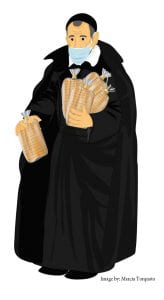 2020: DePaul University’s Community Responds to Crises
2020: DePaul University’s Community Responds to Crises
